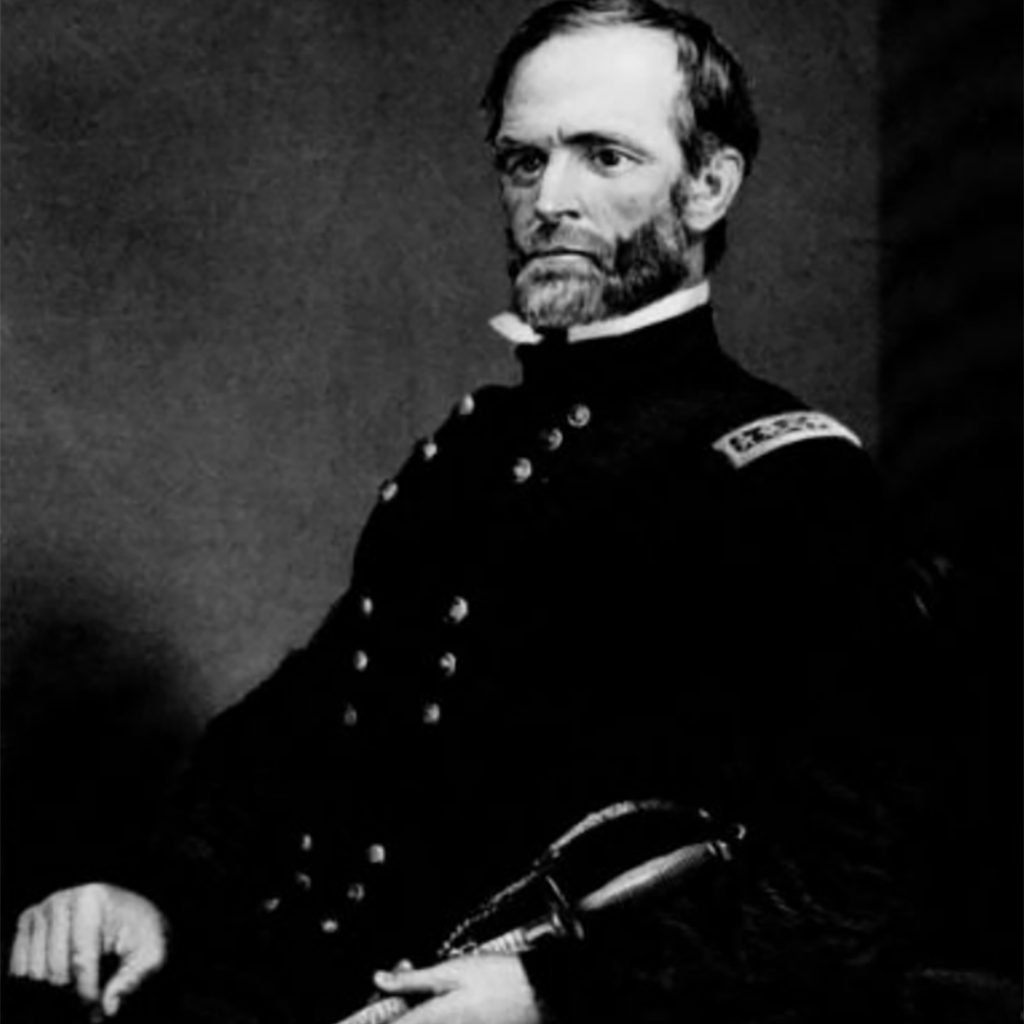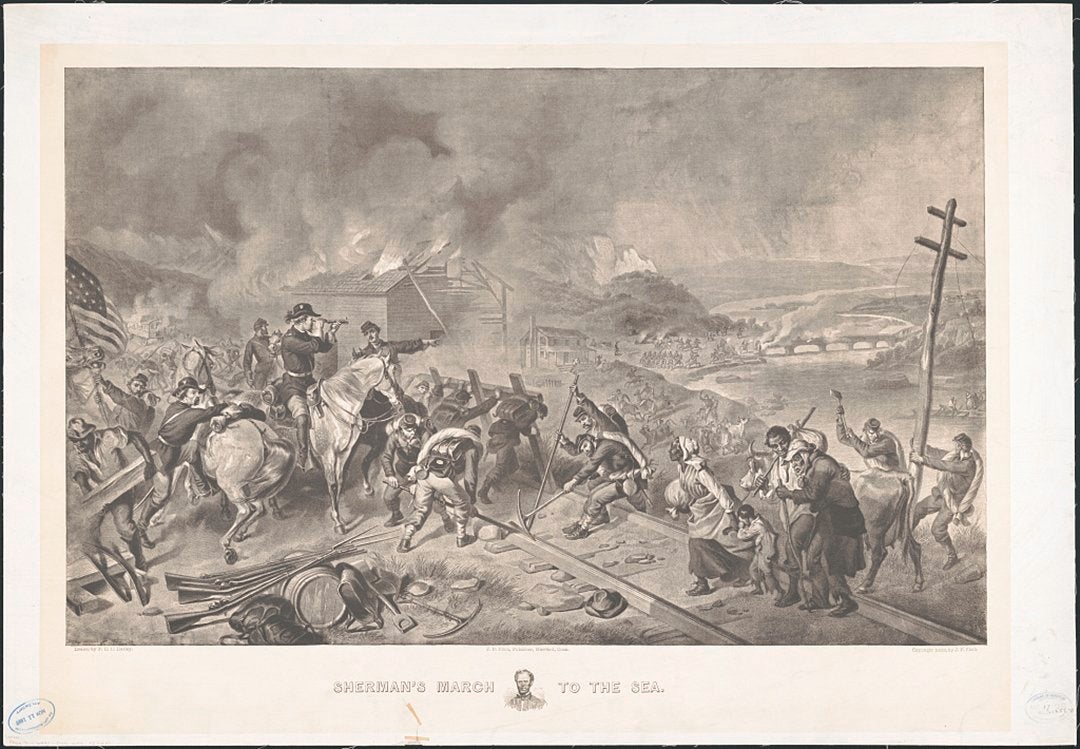The Civil War remains the most devastating conflict in American history, and it has given rise to all kinds of romantic tales that sprung from the carnage. At least one of those involves Augusta.
The Augusta tale maintains that General William T. Sherman’s girlfriend intervened and begged him to spare the town during his infamous march through Georgia to the city of Savannah.
The events of that tale never actually happened. Our research team at The Augusta Press found a much more interesting story and, yes, it does involve the Stovall family which has long roots in Augusta.
Sherman was smitten with a young lady while he was a young cadet at West Point. His roommate was Marcellus Stovall of Augusta. Stovall had a 16-year-old sister, Cecelia, who came with her family to visit Marcellus. Sherman danced with her at a West Point event and was smitten. Sherman and Cecelia engaged in an ardent, but short-lived, correspondence.
[adrotate banner=”19″]
By the time Sherman arrived at his duty station in Augusta, Cecelia was married and living in Cartersville with her husband, Charles T. Shelman.
The truth is, when Sherman and his men marched through Cartersville, they began ransacking a plantation. The family who owned the plantation had fled, but allegedly, a slave that tearfully asked Sherman not to burn the home.
Sherman inquired as to who owned the home and the man replied, “It belongs to Mrs. Cecelia Stovall Shelman.”
Sherman immediately ordered his men to replace any looted items and spared the home.
Farther down the road, once Sherman’s initial two columns met up in Milledgeville and headed toward Savannah, sacking Augusta became a possibility – but in reality, was impossible.

Sure, the Confederate Powder Works would have been a major prize for Sherman to capture and blow up, but Augusta was literally a fortress. It is worth noting that inside that fortress was a massive medical center treating war wounded.
Confederate General Braxton Bragg had sent his troops to fortify the city and some of the breastworks they constructed survive to this day at Magnolia Cemetery and the Municipal Golf Course.
An attack on Augusta would have meant a prolonged siege, and with 60,000 men and thousands of horses to feed from what could be foraged, Sherman couldn’t afford to stop.
Augusta was simply out of Sherman’s grasp. He had made the decision to cut his supply lines after burning Atlanta so that he could travel faster to Savannah where ships were waiting just outside the harbor to resupply him.
Sherman’s men had to subsist by plundering whatever was available from local farms and fields during the long march to the sea and they did so, sometimes with hedonistic glee.
The bottom line was that Sherman knew he could not take Augusta. There was really very little outside of Augusta for 60,000 men to pillage, and therefore a long siege would mean his men would likely starve to death.
To hear it from the men who manned what was basically Fort Augusta, they concluded that Sherman simply didn’t have the “tallywags” to dare confront them.
[adrotate banner=”24″]
So, the romantic story of Augusta being spared by “Uncle Billy’s” girlfriend is not true. Augusta was spared by the bad ass men who manned the breastworks and were prepared to fight to their deaths.
An interesting finale to the story is that Cecelia Stovall Shelman’s nephew Pleasant Stovall, who went on to become editor in chief of The Augusta Chronicle newspaper, wrote Sherman a letter in 1888 asking him to put to bed, for once and for all, the reason he did not attack Augusta.
Sherman answered in his usual terse manner.
“I didn’t have to,” he responded to Stovall. The old general went on to say that if Augusta felt cheated in some way by not having to face his army, then he could return upon request.
“I can send a detachment of 100,000 or so of Sherman’s Bummers and their descendants who will finish up the job without charging Uncle Sam a cent,” Sherman quipped.
So, yes, General Sherman’s feelings for Miss Stovall, even though she had refused to court him early in their lives, did save her plantation from destruction, but she had nothing to do with the Siege on Augusta that never happened in the Civil War.
…And that is something you might not have known.
Scott Hudson is the Managing Editor of The Augusta Press. Reach him at scott@theaugustapress.com
[adrotate banner=”45″]












